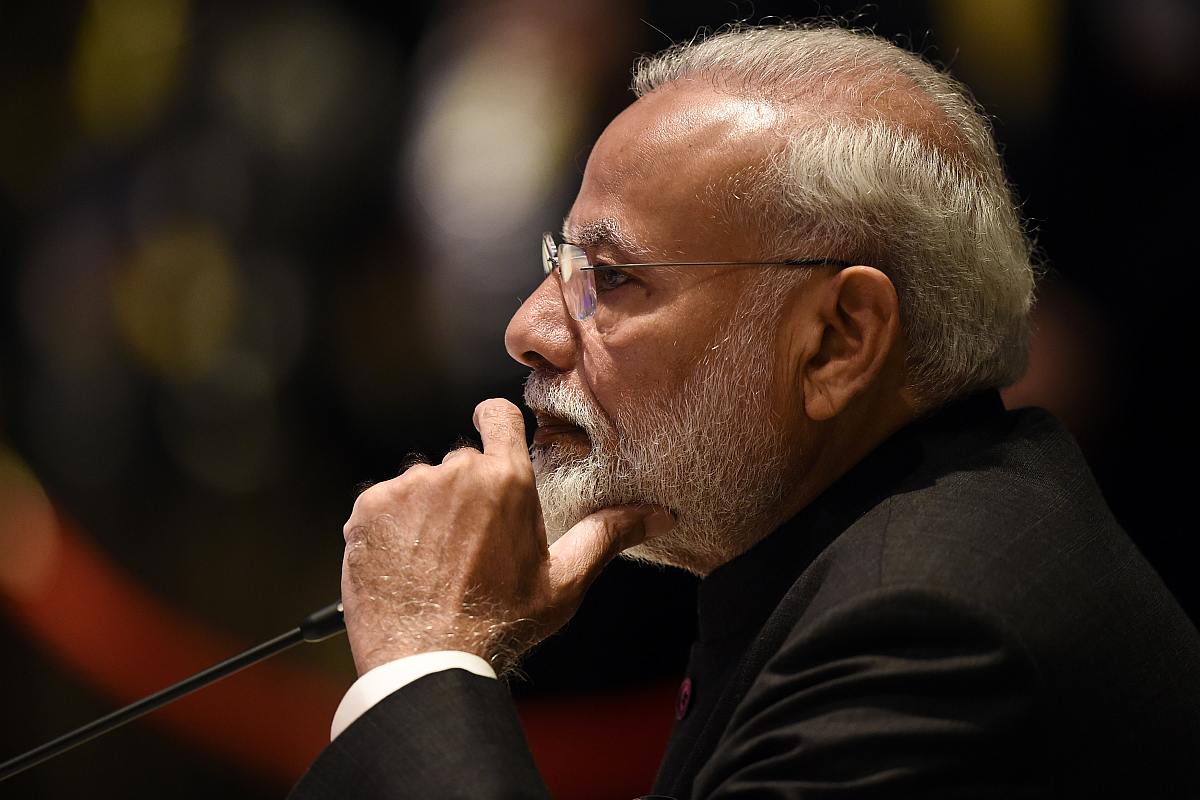First time the whole world is so optimistic about India: PM Modi at Global Investors Summit in Bhopal
Madhya Pradesh capital, Bhopal, is hosting the “Invest MP Global Investor Summit” (GIS) 2025, which is being held on February 24-25.
India’s decision to drop out of Regional Comprehensive Economic Cooperation came as Opposition leaders’criticism grew over cheap Chinese goods flooding the domestic market affecting the local businesses.

Prime Minister Narendra Modi attends the 16th ASEAN India Summit in Bangkok on November 3, 2019, on the sidelines of the 35th Association of Southeast Asian Nations (ASEAN) Summit. (Photo by Lillian SUWANRUMPHA / AFP)
In a sudden move, India decided to opt out of the Regional Comprehensive Economic Cooperation on Monday as criticism grew from Congress and some outfits of the Sangh Parivar. India was going to be one of the 16 nations to sign the trade deal but chose to drop out until “significant outstanding issues” were resolved, even as all other 15 countries involved in the negotiations stated that they were ready to sign the mega trade deal in 2020.
“When I measure the RCEP agreement with respect to the interests of all Indians, I do not get a positive answer. Therefore, neither the Talisman of Gandhiji nor my own conscience permit me to join RCEP,” Modi said in his statement at the RCEP.
Advertisement
The Regional Comprehensive Economic Partnership (RCEP) is a trade deal that was being negotiated among countries including the 10 Association of Southeast Asian Nations (ASEAN) members (Brunei, Cambodia, Indonesia, Laos, Malaysia, Myanmar, the Philippines, Singapore, Thailand, and Vietnam) and the six countries with which the bloc has free trade agreements (FTAs), India, Australia, China, Korea, Japan, and New Zealand.
Advertisement
The purpose of the deal is to create an umbrella trade agreement spanning all 16 countries which promises to be the biggest free-trade zone in the world. This means that it would be easier for the products and services of each of these countries to be available across the entire region.
Congress leaders, Sonia Gandhi and Rahul Gandhi were vocal of their apprehensions regarding India joining the deal. Rahul Gandhi on Monday said that the proposed RCEP agreement which India is discussing with the Association of Southeast Asian Nations (ASEAN) would flood the country with cheap goods and lead to millions of job losses.
He also took a dig at Prime Minister Narendra Modi’s ‘Make in India’ initiative, saying it had turned into a scheme to “buy from China.”
Gandhi took to Twitter and said, “Each year we import Rs. 6,000/ worth of goods from China for every Indian! A 100% increase since 2014. #RCEP will flood India with cheap goods, resulting in millions of job losses & crippling the (Indian) economy.”
A slowdown of the economy, with GDP growing at just 5% in April-June 2019, no immediate signs of a turnaround and rising unemployment also seem to be the reasons why India chose to leave the trade deal.
BJP president and Home Minister Amit Shah praised PM Modi’s “strong leadership and unflinching resolve to ensure national interest in all circumstances.”
India’s decision to not sign RCEP is a result of PM @narendramodi’s strong leadership & unflinching resolve to ensure national interest in all circumstances.
It shall ensure support to our farmers, MSMEs, dairy & manufacturing sector, pharmaceutical, steel & chemical industries.
— Amit Shah (@AmitShah) November 4, 2019
Advertisement